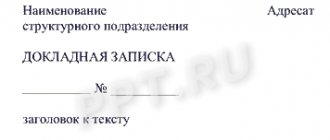Example sentences with the word
- The client's claim under the contract was not drawn up correctly.
- I have a complaint against you regarding the conduct of the lecture.
- The reader had a significant complaint about the author’s article, which he did not refuse to express.
will come in handy or come in handy The words “will come in handy” and “will come in handy.”
Educating children at the Trust school is an excellent opportunity for you to give your children quality education.
This educational institution was founded quite a long time ago. And over the years of work it has managed to earn an excellent reputation. Reviews.
The history of educational institution No. 28 dates back to one thousand nine hundred and fifty-nine.
This educational institution is not just a school. And the name was not invented.
save save or save The word wants to be written in different ways, but.
The private school “Choice” is proud of its education system, where it is developed for each student.
Fear before the session usually occurs among freshmen. They are not yet familiar with.
The private school Lancman School is the brainchild of the talented Ilya Latsman, who carefully.
sees or sees The word “sees” has an unstressed ending, resulting in can.
The process of applying to university consists of many small puzzles.
link or reference The double “s” sometimes disappears because we do not pronounce the long letter.
The word "claim" is written with the letter "e" in the first syllable pre-. This is a dictionary word whose spelling should be memorized.
Let’s figure out how to spell the word “claim” or “claim” correctly, with the letter “i” or “e”, and why. First, let's find out what this lexeme means in Russian.
The meaning of the word "claim"
The word being analyzed most often belongs to the official business style of speech. It is used when drawing up complaints, statements, etc.
This word means
- a claim, a declaration of the right to possess something, to receive something;
- demand, expression of displeasure;
- statement by the creditor, buyer, customer, client about the defect he discovered in the goods received or in the work performed;
- the desire to attribute unusual qualities to oneself, seeking recognition of them by other people.
Read more: Is it possible to pick up a medical card from a clinic?
The word we are interested in is borrowed from the Latin language and goes back to the Late Latin praetensio. The initial element prae- means “before”.
Meaning in Russian
Let's look at the meaning of the word to understand its spelling.
Note that now the lexeme is most often used in an official business style of speech when drawing up statements, complaints, etc.
Here are a number of lexemes with a similar meaning: “ambition”, “statement”, “demand”, “claim”, “claim”, “complaint”, “complaint”, “application”.
Spelling of the word "claim"
In Russian, this word is pronounced with the second stressed vowel of the root:
pre tens i - root/suffix/ending.
For this reason, the first vowel is not clearly heard and doubt arises about the choice of the letter “i” or “e”.
You should remember the spelling of the letter “e” in the first syllable of this borrowed word or, if you have difficulty, consult a dictionary.
The spelling "pri i tenziya" or "pre tenziya" is erroneous.
In Efremova's dictionary
Emphasis: claim f.
- A claim to own someone or something, a right to something; claim
- Statement of displeasure with someone or something; complaint against smb., sth.
- The behavior of a person claiming something, seeking recognition by others of a quality attributed to him.
- Statement by the buyer or customer about the defects he discovered in the property received from the seller or contractor or in the work performed; complaint.
How to remember the spelling of a word?
1. In the second syllable, the stressed vowel sound, indicated by the letter “e”, is clearly heard:
This letter “orders” the writing of the first letter of the same type.
2. This term is often used in combination with a verb:
raise a claim.
The letter “e” is written at the beginning of both words.
Examples
The bank filed a claim for citizen V. to collect the amount of debt under the loan provided.
Your claim for a defective product will be reviewed as soon as possible.
The housing and communal services received a complaint from residents of building No. 76 about poor-quality repairs to the entrance.
Sports observers noted that race participant number 7 was rapidly moving towards the finish line with a clear claim to victory.
A claim is a pre-trial document. Most often, claims are written if this is provided for in the contract. Otherwise, the court will simply not accept the claim for consideration.
But even if the contract does not contain a provision for mandatory pre-trial dispute resolution or there is no contract at all, and, for example, there is a store receipt, a well-drafted claim can bring a positive result. And there will be no need to bring the case to court, wasting time, nerves and money.
Citizens most often make complaints about goods purchased in a store or a service provided by a company. There are also frequent complaints against developers about violation of construction deadlines (delivery of the house) according to the building regulations and about the elimination of deficiencies (in terms of the quality of the apartment).
But no matter what issue the complaint is about, it is written according to a certain scheme. Let's take a closer look.
By the way, you can download claims for the protection of consumer rights and for shared participation in construction using this link.
Despite the fact that any claim is drawn up in free form, a well-drafted document must have its own specific structure, which has been developed in practice.
The claim consists of the following elements:
- "A cap".
- Title.
- Factual grounds (description of the situation, plot).
- Legal grounds.
- Calculations of penalties, interest.
- Requirements.
- Deadline and procedure for response.
- Possible consequences of a negative response or non-response to a claim.
- Applications.
- Date, full name, signature.
Now let's talk about everything in order.
Spelling a word
The word “claim” is correctly spelled with the prefix “pre-” . Writing starting with “pri-”: “pretension” is a gross mistake! Its main reason is the similarity of the spelling of prefixes of completely different meanings in front of a root of foreign origin, the meaning of which is unclear “by eye”. Let's take a closer look.
“Claim” is an international concept. Comes from the Latin “praetensio”, where the prefix “prae-” means “before”, “before”, “before” . “Tensio” – tension, tension, spasm, cramp.
Interpretation of “praetensio” – before a break, before a conflict, before a formal dispute, before a trial, before a fight.
In the same meanings, this term has survived to this day in the languages of almost all civilized peoples and nations.
Meaning in Russian
In Russian, the word “claim” has five meanings:
- Claiming rights to something or someone: “ A claim for the return of abandoned, transferred or sold housing by the previous owner must be filed before the expiration of the statutory limitation period”; “ claim to transfer a jointly-acquired child into his care is rejected due to the plaintiff’s systematic failure to fulfill his paternal responsibilities.” Synonyms: “application”, “statement”.
- Claims (usually in material terms): “Unfortunately, we recognize your claim for a penalty for failure to fulfill the contract as unfounded, since we curtailed the work at the site due to force majeure circumstances.” Synonyms: “complaint”, “demand”.
- Expressions of dissatisfaction: “ A claim for a defective product made publicly at the place of purchase is equivalent to a formal claim.” Synonyms: “statement”, “complaint”.
- A reminder and/or expression of protest regarding a violation of something previously agreed upon: “We would prefer to resolve our mutual claims regarding your violation of the debt repayment schedule out of court.” Synonyms: “application”, “statement”, “reproach”, “reproach”.
- Attribution (by default to oneself) of certain properties, qualities, advantages (usually with the aim of impressing and/or exerting moral pressure): “I am forced to admit that your claims to leadership in the team and promotion in your career do not at all correspond to your actual achievements." Synonym: "claims". Partial synonyms: “types”, “applications”.
Subtleties of use
As you can see, “claim” is mostly used with the preposition “on”. Which means that the subject of the dispute is present and at least one of the parties has clearly formulated its position. Expressions like “a claim about...” are incorrect, since the preposition “about” carries a semantic connotation of reticence.
In addition, at least two phraseological units (stable phrases) with “claim” are known, which are quite widely used in non-business speech:
- “I have no complaints” means that the matter has not come to an obvious conflict, the controversial issues have been settled by mutual agreement of the parties: “Welcome, Vasya Palych! I have no complaints , thank you for your understanding!”
- “Pre-trial claim” means an offer, intention or agreement to resolve the conflict privately, without washing dirty linen in public: “Listen, it’s enough for me to be with Dima one day a week. Let's settle this among ourselves, like a pre-trial claim !
Cause of errors
One of the meanings of the Russian prefix “pre-” coincides with the original Latin, see above. In the interpretation of “before”, “pre-” is used more with foreign words (“predicate”, “prelude”, “prestige”, “pretender”, “prefect”, etc.
), although it is also applicable to Russian roots, for example: “obstacle”, “elderly”, “limit”, “obstacle”, “obstacle”. The prefix “pre-” is also used in the same sense: “to warn”, “to predict”, “previous”, etc.
But, in addition to the meanings of precedence and prevention, the Russian “pre-” also carries other semantic shades:
- Ratios of sizes and location in space: “The excess of the mouth of the chimney above the ridge of the roof must be no less than that established by fire safety rules and SNiP.”
- Indications of outstanding quantitative and qualitative indicators: “excellent”, “enormous”, “delicious”, “delicious”, etc.
- Headship and domination: “Health above all!”;
including “everything has already happened”:
- Achieving goals despite unfavorable conditions: “Overcoming illness, he completed the work.”
- Getting ahead of or going beyond established boundaries: “exceed (rival, credit limit)”, “exceed (speed, same limit)”.
- Rivalry, opposition, difficulty, prohibition and its violation: “to argue”, “to contradict”, “disdain”, “punctuation”, “to stop”, “criminal”.
Unlike “pre-,” “prae-” does not concern the “ripe” situation, but only its harbingers. Therefore, the Russian claim may also be a judicial one, which may develop into open confrontation. In Western European languages, such circumstances are most often called by other words, and a claim is considered to be something that is still hidden.
The meaning of the prefix “pri-” is completely different: it means a desire for something, joint action (cooperation), possession or close proximity : “to press”, “order”, “adjacent/adjacent”, “belonging”, “to lean close”, “to cheer up”, “to acquire”, “to hide”, “to appropriate”, “to lean against”, “berth”, etc.
In Romano-Germanic languages, there are prefixes “co-” (in Latin) for such cases; in English there is also a preposition “to”, which cannot be confused with “prae-”. Together with the borrowed words, “co-” also came into Russian: “cooperation”, “coordination”, “commission”, etc. One way or another, there is only a vague hint of a conflict situation (“to appropriate”, “to hide” ).
Therefore, writing “claim” would be a triple mistake:
- Semantic (notional): the writer either misunderstands or does not understand at all what is being said.
- Stylistic: even if I understood what was going on here, I was unable to express it clearly.
- Spelling.
About pronunciation
The unstressed “e” does not sound very clear, it sounds somewhat similar to “i”. And the percussion is not very distinct; it can be difficult to distinguish it from the “o” by ear. The reason is the highest frequency of “e” in the language.
If a word that can be applied to a great variety of things inevitably has a blurred meaning, then a phoneme (the sound of articulate speech) that has a similar property has a weakening clarity.
This led to the emergence in Russian of a special phoneme for the stressed “e” and the letter “ё” denoting it: “whisper”, “went”, “devil”, since the role of stress in the intelligibility of speech is enormous, and replacing the most commonly used letter in the alphabet with -not yet possible.
But in the notorious Wiktionary, the speaker pronounces “pretension,” as if deliberately pressing the “i” in the prefix. Which, presumably, is not the least of the reasons for errors in the spelling of this word.
Grammar
The correct spelling of “pre-” or “pri-” is a rather complicated issue. Therefore, in order to avoid confusion with the subject of this article, we also give its grammatical characteristics:
“Claim” is an inanimate noun of the feminine gender of the 1st declension. Composition, according to traditional Russian grammar: prefix “pre-”, root “-tenz-”, suffix “-i-”, ending “-ya”.
Merging the prefix with the root, as done in Wiktionary, is absurd, since in Russian there are words of foreign origin with the root “tenz”: “tensometer”, for example. The suffix “-иj” given there is no less absurd: the Russian alphabet is Cyrillic.
Placement of stress and separation by hyphenation pre-tension . Case forms:
- Nominative: claim (singular); claims (plural).
- Genitive: claims (singular); claims (plural).
- Dative: claims (singular); claims (plural).
- Accusative: claim (singular); claims (plural).
- Instrumental: by claim , archaism by claim (singular); claims (plural).
- Prepositional: claims (singular); claims (plural).
Special occasion
Only in some special fields (almost exclusively in art criticism), and only occasionally, is “pre-” written with a hyphen separately from the rest of the word: “pre-dominance”, “pre-composition”.
But let us emphasize: these are very specific exceptions. Suddenly, while writing, something similar flashes into your mind - write together, it will not be a mistake, even if you just came up with a neologism.
***
© WritePravilno.ru
List of academic sources used in the preparation of materials.
You need to know the spelling of these words:
Check another word:
Source: https://pishempravilno.ru/pretenziya/
“Hat” - who to send the claim to
The “heading” in any document is who it is addressed to and who it comes from. It is written in the upper right corner. First it is written to whom, then from whom.
General Director of Vasilek LLC
Shabalin Viktor Petrovich
630098, Novosibirsk, st. Pisareva, house 1
from Ivanov Vitaly Vasilievich
630032, Novosibirsk, st. Lenina, house 1, apartment 10
Read more: How much notice is given about non-renewal of a contract?
If you don’t know the manager’s name, don’t write. It's not necessary. The main thing is to correctly indicate the name of the organization and legal address. Pay special attention - legal address , and not where the organization is actually located.
You can find out the correct name and legal address (registration address of the legal entity) on the tax service website using this link - https://egrul.nalog.ru
In your data you need to indicate your full last name, first name and patronymic, registration address, contact phone number and email if desired.
In Ozhegov's dictionary
CLAIM, -i, f. 1. A claim, a declaration of the right to own something, to receive something. P. for inheritance. Reject someone's claims. 2. Complaint, expression of displeasure. File a claim. P. on the quality (to the quality) of the product. 3. usually plural. The behavior, actions of someone who wants some kind of recognition for him. merits that he ascribes to himself. A man with claims. P. for scholarship. * To have a complaint against someone - to feel resentment, displeasure towards someone. And adj. pretentious, -aya, -oe (to 1 and 2 meanings; special). Pretentious statement.
Heading
It is written large, in the center. You can simply indicate the word “CLAIM”, or you can go into more detail.
For example, “Claim for violation of deadlines for delivery of a shared construction project under agreement No. 2121 dated February 12, 2016.” or “Claim for return of goods of inadequate quality.”
But the content of the title itself has virtually no effect on anything. But a person who will study your document from the first seconds, without going into details, will understand what you want if the title is written in detail.
Origin of the word claim
This word comes from the Latin praetensio. It came to us already with a whole basis, including the dubious part “pre” at the root. Therefore, to understand its meaning, one must delve into its etymology.
Pay attention to the meaning of the word: to express a claim means to disagree with the current state of affairs. The Latin word comes from praetendere - to justify, to oppose, to extend. And also to claim: to want to get more than you have. The meaning of the word implies a disagreement between the current state and the deserved one. In turn, praetendere came from two components that interest us:
- prae – means “before”, preceding something;
- Tendere means to pull, or to strain.
Thus, we understand that we are talking about a word that means preliminary tension, stretching. This is where the roots of the answer to the question of how to correctly write the word claim grow.
The second meaning of the word “claim” is used in phrases like “with a claim to …”. A claim in this meaning is the behavior of a person who does not yet have recognition, but is awaiting it. A person with pretensions is a person who considers himself not only worthy of more, but expecting respect. Such a person believes that he already deserves appropriate treatment. The word is used both to a person and to an object, work, phenomenon, etc.
Can be found in the following designs:
- a painting with a claim to uniqueness,
- a person with a pretense of refined taste,
- speech with a claim to originality.
Most often used with a negative connotation. A person “with pretensions” can be said to be an arrogant, arrogant person. And the characteristic “pretentious” can be replaced with synonyms pretentious, deliberate, complex, intricate, ornate, abstruse. There's also the word "pretentious."
- How to write a letter of claim correctly?
Legal grounds
This is a purely legal block. Here you need to indicate the rules of law (specific articles of law) on which your claim is based.
It should be remembered that in our country laws change almost every day. Therefore you need to be very careful. Or contact a lawyer who is “in the know” about the issue.
One more note - you need to choose the right law, which really applies to your legal relations. There are often mistakes here too.
Otherwise, if you make serious mistakes, they will simply laugh at your claim. Therefore, beware of downloading ready-made templates from the Internet with articles that were relevant several years ago. You know, the Internet is full of garbage. Be careful!
Calculations of penalties, penalties, interest
Penalties (penalties, interest) are calculated either on the basis of an agreement or on the basis of law.
For example, if this is a claim against a developer who violated construction deadlines, the penalty is calculated on the basis of Federal Law 214.
If this is a claim about the use of someone else’s money, Art. 395 of the Civil Code of the Russian Federation.
Calculations must be carried out scrupulously, accurate to the day. It is better to provide the formula (with explanations) on the basis of which you calculate. This will be much more serious and justified.
The result should be a specific amount, accurate to the nearest ruble, which you will demand from the debtor.
In the dictionary Dictionary of foreign words
{tei te}, and, f.
1. A claim, a declaration of the right to own something, to receive something P. for inheritance.
Claim (special) - related to a claim, claims.
2. The behavior of someone who wants to be recognized for some of the virtues that he ascribes to himself.
A man with big claims.
3. Statement by a creditor, buyer, customer, or client about a defect he has discovered in the goods received or in the work performed or in the service. Send any complaints about the quality of the product to the manufacturer.||Cf. CLAIMES" title='CLAIMES, CLAIMES is, what is CLAIMES, CLAIMES interpretation'>CLAIMES, ADVERTISING.
Share the meaning of the word:
Requirements
After all justifications and calculations, the final requirement is formulated. What exactly do you want. Requirements must be formulated as clearly and unambiguously as possible.
For example, “I demand a refund of the amount paid for the goods in the amount of 20,000 rubles. At the same time, I inform you that I refuse to execute the purchase and sale agreement.”
Your requirement is one of the most important components of the claim. It is better to highlight it in the text so that it catches the eye when reading the document.
Read more: Brief description of the student based on the results of the internship
Deadline and procedure for response
If your contract does not provide for a deadline for responding to a claim or you do not have a contract, set your deadline. Usually they set 5,7,10 and 30 days.
Sometimes the deadline is set by law. For example, according to Art. 22 of the Law of the Russian Federation “On the Protection of Consumer Rights”, consumer demands for a proportionate reduction in the purchase price of goods, reimbursement of costs for correcting defects in goods by the consumer or a third party, return of the amount of money paid for goods , as well as a requirement for compensation for losses caused to the consumer as a result of the sale of goods of inadequate quality or provision of inappropriate information about the product, are subject to satisfaction by the seller (manufacturer, authorized organization or authorized individual entrepreneur, importer) within ten days from the date of presentation of the corresponding demand .
It would also be a good idea to indicate how you should be given an answer. Example of wording: “Please give your answer in writing, having previously communicated your decision to me by phone later than the deadlines determined by the Law of the Russian Federation “On the Protection of Consumer Rights.”
Possible consequences of a negative response or non-response to a claim
Everyone knows very well the wording “otherwise I will go to court.” But this is very banal. And such a “scarecrow” will not surprise anyone.
It is better to indicate specific negative consequences that may arise for your opponent. For example, additional fines, expenses for state fees, legal services, etc. You can also point out reputational risks.
The law contains a lot of additional enforcement measures.
For example, in our claims under the Law on the Protection of Consumer Rights and in disputes with developers under the DDU, we use up to 6-7 methods of additional influence. And these are not empty words. This is real money, which can then be used to “punish” the defendant in court.











